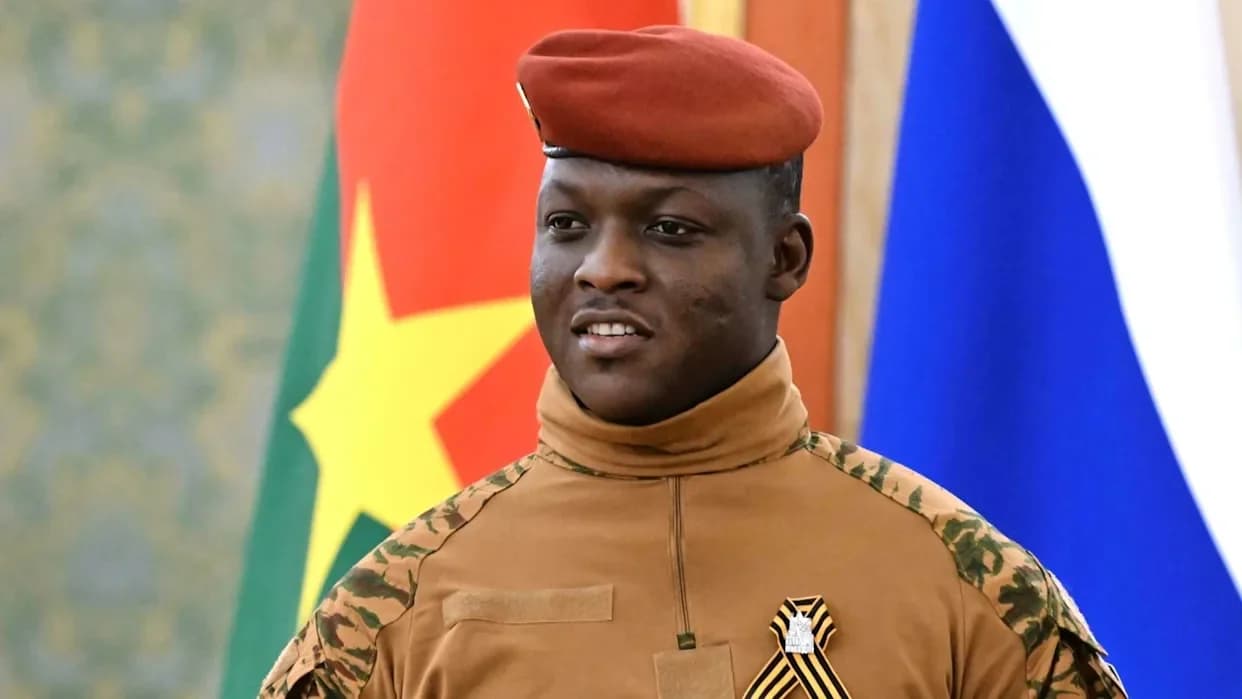We're loading the full news article for you. This includes the article content, images, author information, and related articles.
Burkina Faso's military government has refused a US proposal to accept deportees, including non-nationals, leading to the temporary suspension of most US visa services for Burkinabe citizens.

Ouagadougou, Burkina Faso – In a significant diplomatic development, Burkina Faso's military government has firmly rejected a United States proposal to accept deportees, including migrants from third countries. This refusal has been met with the temporary suspension of most US visa services for Burkinabe citizens, effective Thursday, October 9, 2025, at 1:58 AM EAT.
Karamoko Jean-Marie Traoré, Burkina Faso's Minister of Foreign Affairs, publicly questioned whether the US embassy's decision constituted "blackmail." He stated that the US proposal, which he described as "indecent," runs contrary to the principle of dignity upheld by Burkina Faso.
The US administration, under President Donald Trump, has increasingly sought to deport migrants to African countries as part of its broader immigration crackdown. This policy has seen the US enter into agreements with several African nations to accept individuals expelled from the United States, often those with no direct ties to the receiving country.
Burkina Faso's leader, Captain Ibrahim Traoré, who seized power in a coup in September 2022, has adopted an anti-imperialist stance, distancing the nation from former colonial power France and other Western nations while fostering closer ties with Russia.
The US Embassy in Ouagadougou announced on its website that it would temporarily halt the issuance of immigrant, tourist, student, and business traveler visas. Burkinabe residents seeking these visas will now be required to travel to the US embassy in Lomé, the capital of neighboring Togo.
Foreign Minister Traoré indicated that Burkina Faso received a diplomatic note from the US, which cited non-compliance with US visa rules by Burkinabe nationals as a reason for the suspension. He, however, interpreted this as a potential "pressure tactic" linked to Burkina Faso's rejection of the deportation proposal.
Minister Traoré emphasized Burkina Faso's position as "a place of dignity, a destination, not a place of expulsion." He reiterated that while Africans wishing to travel freely to Burkina Faso are welcome, the country would not accept individuals forced to relocate under deportation orders.
Several other African countries, including Eswatini, Ghana, Rwanda, and South Sudan, have accepted deportees from the US in recent months. However, Nigeria has publicly stated its refusal to accept US deportees.
Key Developments in US-Burkina Faso Immigration Standoff:
This development could significantly impact Burkinabe citizens seeking to travel to the US for tourism, education, or business, necessitating additional travel and expenses to apply for visas in Togo. The diplomatic friction also underscores the challenges in US-Africa relations, particularly concerning immigration policies under the current US administration.
The US Embassy's official statement cited a review and evaluation of existing screening and vetting procedures worldwide as the reason for the visa service pause, rather than explicitly linking it to the deportation refusal. However, Minister Traoré's assertion of a direct link suggests a deeper diplomatic dispute. The long-term implications for US-Burkina Faso relations remain uncertain.
The temporary pause on routine visa services by the US Embassy in Ouagadougou began on Thursday, October 9, 2025. The embassy has stated it will update its website when appointment scheduling resumes.
Observers will be closely watching for further statements from both the US State Department and the Burkinabe government regarding the visa suspension and the deportation policy. The response from regional bodies and other African nations to this diplomatic standoff will also be crucial.
Keep the conversation in one place—threads here stay linked to the story and in the forums.
Sign in to start a discussion
Start a conversation about this story and keep it linked here.
Other hot threads
E-sports and Gaming Community in Kenya
Active 9 months ago
The Role of Technology in Modern Agriculture (AgriTech)
Active 9 months ago
Popular Recreational Activities Across Counties
Active 9 months ago
Investing in Youth Sports Development Programs
Active 9 months ago